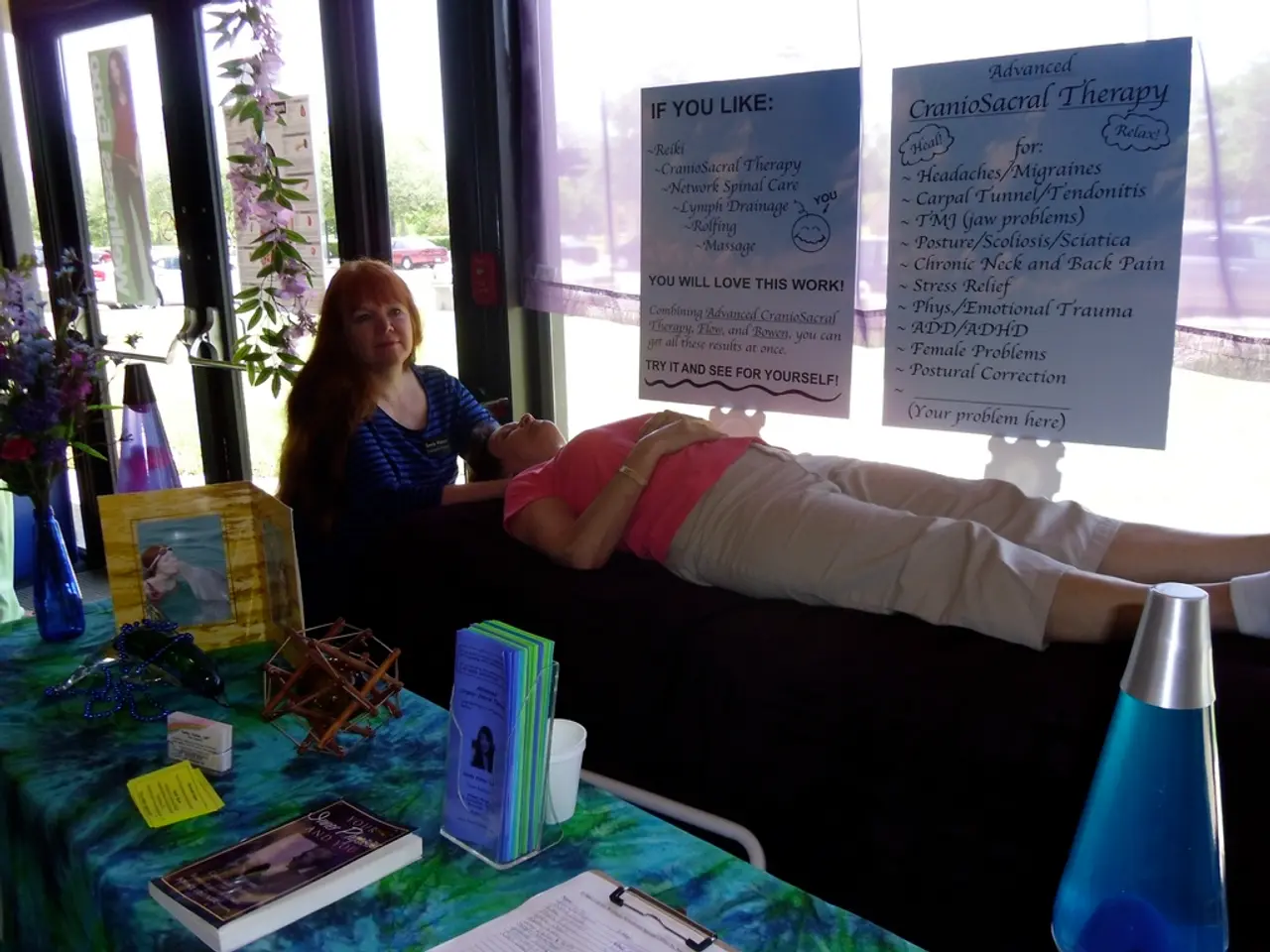Treatment for Sleep Disorders: Cognitive Behavioral Therapy for Insomnia (CBT-I) and Medication
In the quest for better sleep, a non-drug therapy called Cognitive Behavioral Therapy for Insomnia (CBT-I) emerges as a preferred choice for long-term insomnia management. This approach, lasting for 5 weeks or less, offers significant and lasting improvements in sleep quality, making it a safer and more effective alternative to prescription medications.
CBT-I comprises several components, including sleep consolidation, stimulus control, cognitive restructuring, sleep hygiene, and relaxation techniques. Sleep consolidation involves limiting the time spent in bed, while stimulus control requires using the bedroom only for sleeping and sex. Cognitive restructuring involves transitioning negative thoughts into positive ones, and relaxation techniques include mindfulness meditation and slow, deep breathing.
Sleep hygiene emphasizes practices that promote healthy sleep patterns. This includes avoiding caffeine after midday, avoiding bright light exposure before bed, and getting out in the bright daylight in the morning. Light therapy may also help some people with insomnia, especially in regulating the sleep-wake cycle and reducing insomnia symptoms.
While prescription medications like benzodiazepines and receptor agonists can have a sedating effect, they pose risks such as dependency and adverse effects. CBT-I, on the other hand, addresses the underlying causes of insomnia, resulting in improved sleep habits and cognitive patterns that maintain good sleep long-term.
A large randomized controlled trial using digital CBT-I (SHUTi OASIS) demonstrated significant improvements in insomnia symptoms and sleep parameters in older adults, sustained at 6- and 12-month follow-ups compared to patient education controls. Meta-analyses and guidelines strongly recommend CBT-I as the first-line treatment for insomnia, due to its efficacy, safety, and durable effects.
Insomnia can be a risk factor for conditions such as major depression, anxiety, substance use disorders, and hypertension. Around 30 to 40% of U.S. adults report insomnia symptoms at some point in the year. About 1 in 5 cases of short-term insomnia can progress to chronic insomnia, which can last many years.
CBT-I and sleep medications may produce similar results, but a person who undergoes CBT-I is less likely to experience adverse side effects, has fewer relapses, and can usually continue to experience sleep improvements long after the end of their treatment.
For those seeking a trained CBT-I counselor, they can find one through the Society of Behavioral Sleep Medicine or the American Board of Sleep Medicine. It's important to note that while medications like Zopiclone (Zolpidem), Ramelteon (Rozerem), Doxepin (Silenor), and Lemborexant (Dayvigo) can alter hormones and neurotransmitters involved in the sleep/wake cycle, they may not offer the same long-term benefits and safety profile as CBT-I.
In summary, CBT-I is both more effective and safer for long-term management of insomnia in adults than prescription medications, with demonstrated durable benefit extending at least a year post-treatment. This makes CBT-I the preferred evidence-based approach for persistent insomnia. Acupressure, yoga, and tai chi also have evidence supporting their use in treating insomnia, providing additional non-pharmacological options for those seeking better sleep.
- Cognitive Behavioral Therapy for Insomnia (CBT-I) offers significant and lasting improvements in sleep quality, making it a safer and more effective alternative to prescription medications, especially in long-term insomnia management.
- CBT-I addresses the underlying causes of insomnia, resulting in improved sleep habits and cognitive patterns that maintain good sleep long-term, as opposed to prescription medications which may pose risks such as dependency and adverse effects.
- In a large randomized controlled trial, digital CBT-I (SHUTi OASIS) demonstrated significant improvements in insomnia symptoms and sleep parameters in older adults, with these improvements sustained at 6- and 12-month follow-ups compared to patient education controls.
- CBT-I is the preferred evidence-based approach for persistent insomnia, with meta-analyses and guidelines strongly recommending it as the first-line treatment for insomnia due to its efficacy, safety, and durable effects.
- Acupressure, yoga, and tai chi are some non-pharmacological options, in addition to CBT-I, that provide evidence supporting their use in treating insomnia, offering a range of comprehensive health-and-wellness and mental-health therapies and treatments for better sleep.




